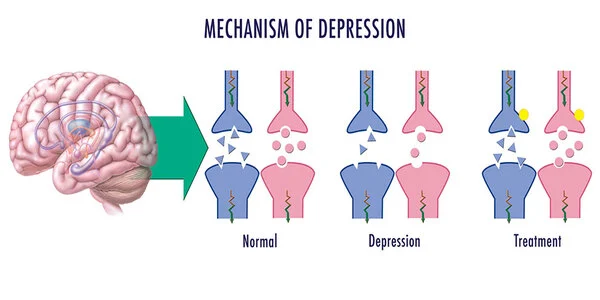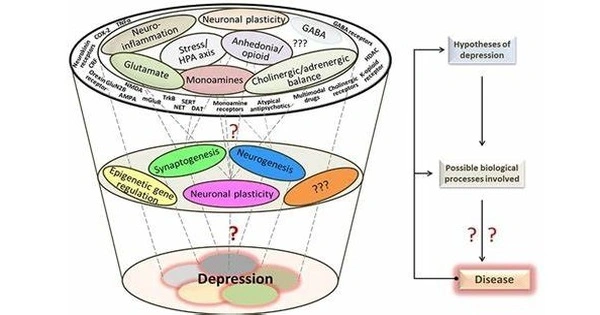Major depressive disorder (MDD) is a common mental health condition that can be debilitating for many people. It has long been recognized that MDD is influenced by both genetic and environmental factors. Researchers identify a gene that interacts with stress to mediate aspects of treatment-resistant MDD in an animal model in a new study published in Biological Psychiatry by Elsevier.
Neurotransmitters such as serotonin, norepinephrine, and dopamine have been studied in the development and persistence of depression. Antidepressants frequently target imbalances in these neurotransmitters.
Jing Zhang, Ph.D., at Fujian Medical University and senior author of the study, said, “Emerging evidence suggests that MDD is a consequence of the co-work of genetic risks and environmental factors, so it is crucial to explore how stress exposure and risk genes co-contribute to the pathogenesis of MDD.”
Emerging evidence suggests that MDD is a consequence of the co-work of genetic risks and environmental factors, so it is crucial to explore how stress exposure and risk genes co-contribute to the pathogenesis of MDD.
Jing Zhang
To accomplish this, the authors used a mouse model of stress-induced depression known as chronic social defeat stress (CSDS), in which mice are exposed to aggressor mice on a daily basis for two weeks. They concentrated on LHPP, a gene that interacts with other signaling molecules at neuronal synapses. Under stress, increased expression of LHPP in stressed mice exacerbated depression-like behaviors by decreasing expression of BDNF and PSD95 by dephosphorylating two protein kinases, CaMKII and ERK.
Dr. Zhang went on to say, “Interestingly, LHPP mutations (E56K, S57L) in humans can enhance CaMKIIα/ERK-BDNF/PSD95 signaling, which suggests that carrying LHPP mutations may have an antidepressant effect in the population.”

MDD is a disorder with a wide range of symptoms. People’s responses to treatment differ depending on the type of depression they are experiencing. A significant proportion of people with depression do not respond to standard antidepressant medications and have “treatment-resistant” depression symptoms. These patients frequently respond to medications such as ketamine or esketamine, as well as electroconvulsive therapy. Notably, esketamine significantly reduced LHPP-induced depression-like behaviors, whereas fluoxetine did not, implying that the mechanism may underpin some types of treatment-resistant depression.
“We have limited understanding of the neurobiology of treatment-resistant forms of depression,” said John Krystal, MD, Editor of Biological Psychiatry, of the study. This research identifies a depression risk mechanism for stress-related behaviors that do not respond to standard antidepressants but do well with ketamine. This could imply that the risk mechanisms associated with the LHPP gene shed light on the biology of treatment-resistant depression.”
Dr. Zhang went on to say, “Together, our findings identify LHPP as an essential player driving stress-induced depression, implying targeting LHPP as an effective strategy in MDD therapeutics in the future.”





